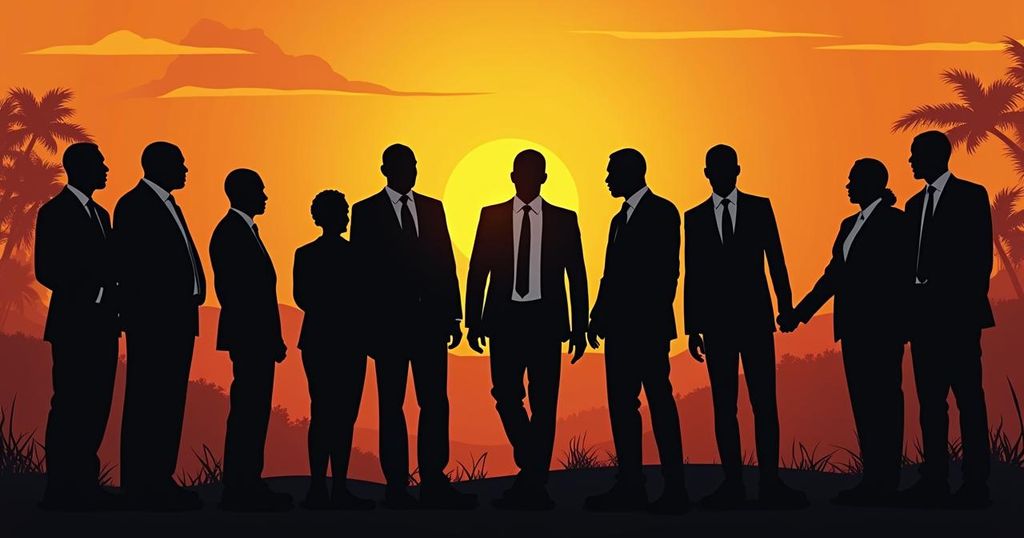Mozambique Elections: A Pivotal Moment for Change in Leadership and Policy

Mozambique’s upcoming elections could see the election of its first president born after independence in 1975, as citizens vote against the backdrop of unemployment, corruption, and armed conflict. President Filipe Nyusi steps down after eight years, leaving a contested field with four candidates, including both established politicians and fresh faces. Key issues include the armed conflict in Cabo Delgado, job creation amidst soaring poverty, and a growing climate crisis affecting food stability.
Mozambique is currently undergoing significant electoral changes as the country heads for polls that may result in the election of its first president born after its independence from Portuguese colonial rule in 1975. With approximately 17 million eligible voters from a total population of 32 million, the elections encompass parliamentary and provincial elections across all 11 provinces. President Filipe Nyusi, aged 65 and associated with the ruling Mozambique Liberation Front (Frelimo), will conclude his eight-year tenure. Nyusi may represent the last of Frelimo’s leaders who participated in the liberation war, a period marked by extensive violence and loss of life. His presidency has been marred by a substantial corruption scandal, namely the “tuna bond” scandal, which resulted in the imprisonment of several high-ranking Frelimo officials, including a former finance minister convicted in the United States. Electoral sentiment among the populace is divided, with many seeking change while others remain loyal to the seasoned politicians. The youth demographic expresses a desire for job creation and security amidst ongoing high poverty levels and an escalating armed conflict in the north. The election features four presidential candidates: 1. Daniel Chapo (47) — A relatively new entrant in politics, Chapo, proposed by Frelimo, vows to distance himself from the party’s troubled history and promises to restore peace in the Cabo Delgado province beset by violence. However, skepticism remains regarding his ability to separate himself from the legacy of corruption. 2. Ossufo Momade (63) — The current leader of the opposition party Renamo, Momade appeals primarily to older constituents. He has previously contested and opposed election results he deemed fraudulent, and he is noted for his role in peace negotiations following civil strife. 3. Venancio Mondlane (50) — Known as VM7, Mondlane’s focus on youth engagement embeds him squarely in the contemporary political landscape. He aims to provide new leadership as an independent candidate supported by a coalition of parties; his campaign resonates particularly with younger voters. 4. Lutero Simango (64) — Head of the Democratic Movement of Mozambique (MDM), Simango emphasizes economic development by manufacturing jobs domestically, rather than exporting natural resources. Key themes in this election encompass addressing armed conflict in Cabo Delgado, which has claimed numerous lives and displaced 1.3 million, job creation in a country with soaring unemployment, and climate resilience amidst food crises exacerbated by climate change. Current estimates suggest that 1.3 million individuals are currently facing severe food shortages due to adverse climatic conditions induced by the El Nino phenomenon. The electoral process will see votes counted immediately following the closure of polls, with preliminary results expected to emerge shortly thereafter, while official tallies will be released within a 15-day period, allowing time for dispute resolution by the Constitutional Council if necessary.
The electoral landscape in Mozambique is poised for a transformative shift with the country’s impending elections that may pave the way for a younger generation of leadership. This context is underpinned by Mozambique’s historical backdrop of post-colonial governance, characterized by a liberation struggle against Portuguese colonial rule leading to independence in 1975. The ruling Frelimo party, which emerged from that struggle, has faced considerable challenges in governance, notably corruption scandals and an enduring civil conflict. Given the demographic shifts within the country, notably a young population grappling with unemployment and insecurity, the current election cycle presents an opportunity to redefine leadership priorities and address critical socio-economic issues.
The elections in Mozambique mark a potential turning point in the nation’s political trajectory, with a focus on addressing longstanding issues of corruption, security, and economic opportunity. With candidates representing a mix of youthful ambition and established political legacy, the electorate faces a crucial decision that may significantly impact the country’s future direction. As security concerns and economic struggles persist, the outcome of these elections will resonate beyond the immediate political landscape, potentially influencing Mozambique’s long-term stability and development.
Original Source: www.aljazeera.com







